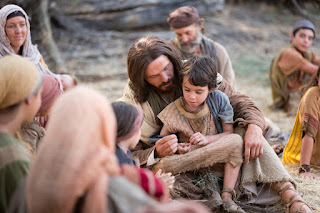At the end of Chapter 6 in Preach My Gospel, there is a self assessment to help you understand how you are developing Christ-like attributes. During a recent priesthood leadership meeting our stake president asked us to each take the self assessment and identify an attribute we could work on. The statements in the self assessment in Preach My gospel say this:
- I feel a sincere desire for the eternal welfare and happiness of other people. (Mosiah 28:3)
- When I pray, I ask for charity—the pure love of Christ. (Moroni 7:47–48)
- I try to understand others’ feelings and see their point of view. (Jude 1:22)
- I forgive others who have offended or wronged me. (Ephesians 4:32)
- I try to help others when they are struggling or discouraged. (Mosiah 18:9)
- When appropriate, I tell others that I love them and care about them. (Luke 7:12–15)
- I look for opportunities to serve other people. (Mosiah 2:17)
- I say positive things about others. (D&C 42:27)
- I am kind and patient with others, even when they are hard to get along with. (Moroni 7:45)
- I find joy in others’ achievements. (Alma 17:2–4)
I’m not proud to say that Charity came up with the lowest score. So I decided to do some scripture study and pondering about charity.
We all know from Moroni 7:47 that “Charity is the pure love of Christ”. We also learn that we must have charity and we are given the actions of someone who has charity.
I have always taken a very pragmatic view of obedience and blessings. I am confident that blessings come from obedience, but I also believe that if you are not receiving the promised blessings from a particular commandment, then you may need to work on improving your obedience. For example, if you are unable to run and not be weary, then maybe the Word of Wisdom needs another look.
As I read Alma 7:24 “And see that ye have faith, hope, and charity, and then ye will always abound in good works.” my pragmatic mind grabbed on to this thought. If I am abounding in good works, then do I have (at least) a portion of charity? This thought gave me, and maybe people like me-who struggle with reaching out with compassion to others, at least some hope that if we try to abound it good works, maybe this is the beginning of developing Christ-like charity.
Finally, consider this thought by President Monson:
“I consider charity—or “the pure love of Christ”—to be the opposite of criticism and judging. In speaking of charity, I do not at this moment have in mind the relief of the suffering through the giving of our substance. That, of course, is necessary and proper. Tonight, however, I have in mind the charity that manifests itself when we are tolerant of others and lenient toward their actions, the kind of charity that forgives, the kind of charity that is patient.”I have in mind the charity that impels us to be sympathetic, compassionate, and merciful, not only in times of sickness and affliction and distress but also in times of weakness or error on the part of others.”There is a serious need for the charity that gives attention to those who are unnoticed, hope to those who are discouraged, aid to those who are afflicted. True charity is love in action. The need for charity is everywhere.” (Thomas S. Monson, “Charity Never Faileth”, October 2010 LDS General Conference)

